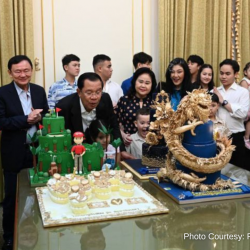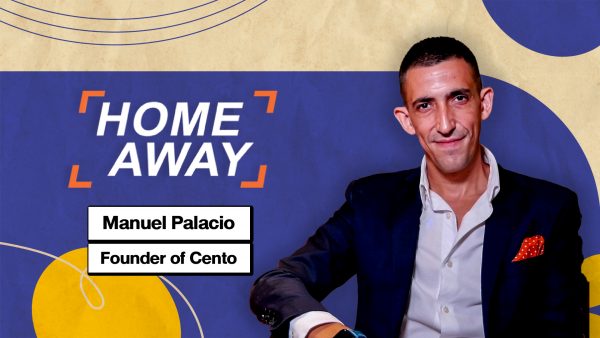‘The truth’, jazz music and Julian Cary
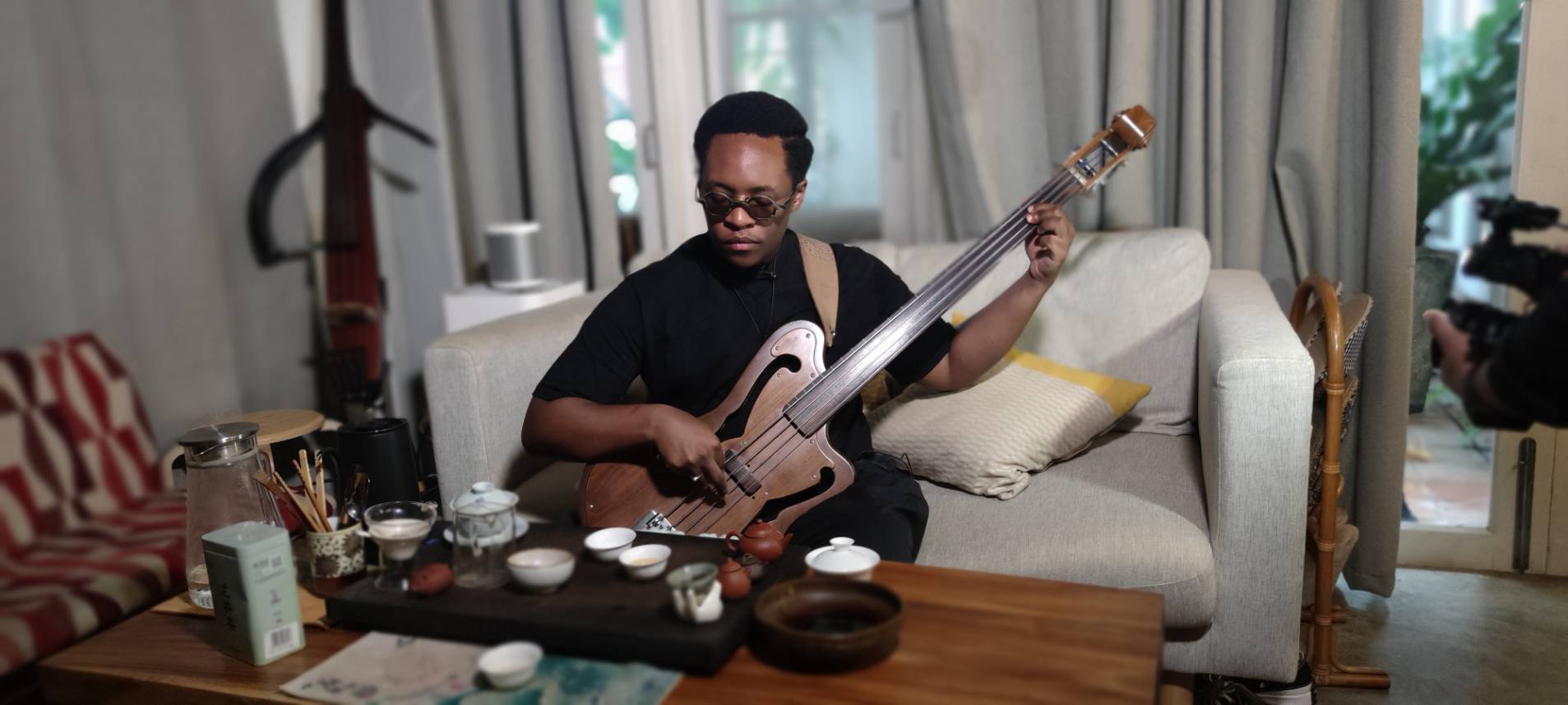
He welcomed us to his incredibly quiet home in a peaceful neighbourhood in the Taling Chan area, a normally busy district north of Thonburi, saying “I am fortunate to live exactly where I live”. Then, he encouraged us to try a few kinds of tea, of which he has plenty on his shelves.
Originally from Denver, Colorado, Julian Cary has a solid background as a Gospel singer, just like everyone in his family. Now, he is a vocalist and multi-instrumentalist, composer and arranger. He is not only a vocal director for many concerts and has performed on stage with Thai superstar “Bird” Thongchai McIntyre and many others, he is also a lecturer.
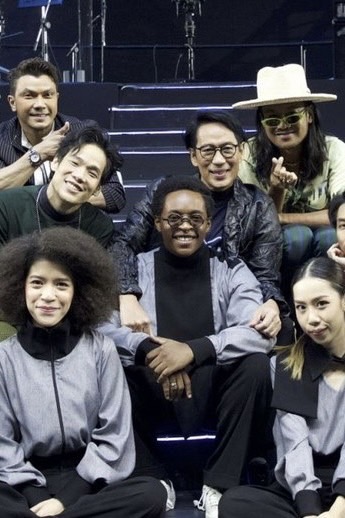
At 21, just before completing his studies at the University of Northern Colorado, he got a job offer to teach jazz voice at Silpakorn University. That was the beginning of his life journey in Thailand. It has been four years since he moved to Bangkok. For him, Bangkok is just like any other big city, where there is a mixture of the good and the bad.
“I need both good stuff and bad stuff”
Julian thought that Bangkok was really overwhelming at times, as it is really packed. There are a lot of people, there are a lot of things going on at the same time. He compared it to being a baby and having someone jingle keys in front of your face. Basically, there’s a lot of stuff to look at, and smell, and experience.
“I think, wherever you go, people are just going to be people, especially if you live in a big city. Denver started to get really big while I was home, and Denver and Bangkok, I really don’t think are that much different. In big cities, most people have the same mindset. They don’t really involve themselves with each other, the way that you would in a small town. A lot of people are kind of focused on themselves, about going forward and don’t bother me and I won’t bother you.
So, like I said, wherever you go, people are still people. I don’t think that just because I moved to Bangkok, it’s like my life is perfect now, or I can follow all of my dreams. Life needs to have a little bit of trouble, life needs to have a little bit of sacrifice, to make sure that you don’t go crazy. Or else what happens is that you end up inventing your own problems, based on things that aren’t important, you know what I mean?” he said as he explained his relationship with Bangkok.
When asked what he thinks about this big city, he said “I think the best way for me to view Bangkok, to live here is like, there’s a lot of good stuff and there’s a whole lot of bad stuff, and I need all of it, I need both good stuff and bad stuff. So, I think it would be crazy to say that Bangkok is perfect. I think it would be crazy to say that Bangkok is like the worst place in the world, because it’s not. It’s a long answer to a short question, that’s kind of what I think about Bangkok”.
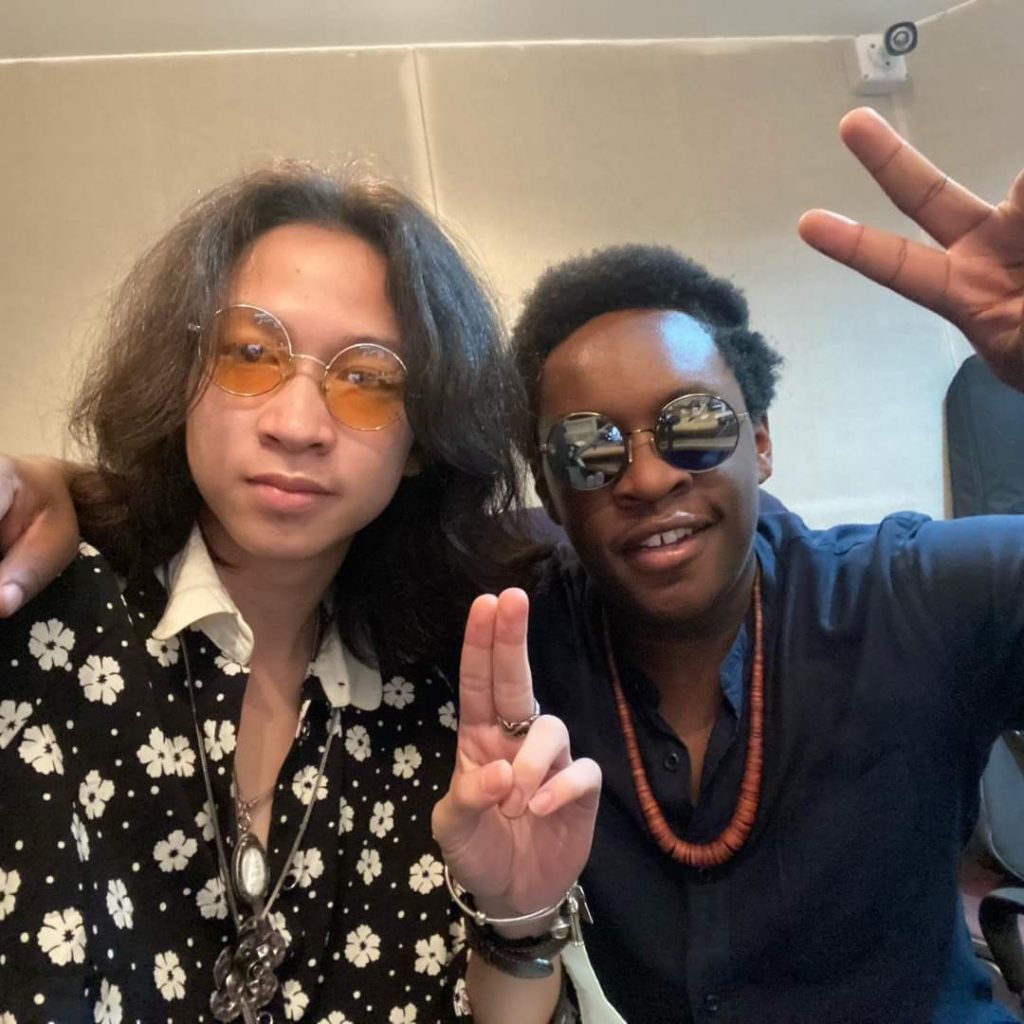
Collectivism vs Individualism
Julian mentioned that, to excel as a jazz singer, it is crucial to embrace individualism and be true to oneself. We asked him to analyse Thai students, who sometimes struggle to balance collectivism and individualism, occasionally taking things to extremes.
He suggested that, to solve the problem of a lack of individualism is to respect the stories that everyone has to tell. “I think that everyone, if you let them speak long enough and if you listen to them, they will reveal themselves. Just because we all dress the same doesn’t mean that we are the same, right? If you have to wear a uniform, that doesn’t make you the same as everyone else, it’s your ideas, it’s your experience that make you different, even if you’re born in the same country, right? Just having the same uniform, or having to sing the same songs or walk in the same way, that doesn’t erase who you are”.
He added that, for those who go extremes, most of the time he doesn’t think it’s authentic.
“Really the trick is to listen to other people. You have to really intend to listen to them when they tell you things about themselves, without really speaking either. That’s how you find out who they are. On the other hand, when you’re speaking with other people, you also have to listen and respect yourself”.
Thais’ relationship with the truth
By teaching himself the local language and surrounding himself with friends and students, Julian can communicate in Thai at a near-native level. He understands Thai culture to some extent, as well as the concept of ‘Kreng Jai’, but still cannot make sense of someone being over considerate over trivial issues.
“I’ll get that with my students, when they’ll have a problem with their homework or something like that, and when I ask them why they didn’t tell me, it’s my job to help you, they say, ‘Kreng Jai, don’t want to text you at nighttime’.
So, there’s this over consideration for other people, in certain moments. In some moments there’s no consideration for other people, right? But it’s only for really strange chosen moments that we would choose not to bother anyone for reasons that we really should bother them, or for things that are really a small deal”.
He said that the issue leads back to the truth. It’s that relationship with truth. In other words, many Thai people do not respect the truth very much. He found this a culture shock when he first arrived in Thailand. Literally speaking, this phenomenon can be seen everywhere in Thai society, especially in politics.
“Like love and trust, they’re very, very different. I think, in order to keep the peace, in order to make sure that things aren’t awkward for a moment, a lot of Thai people really, really avoid telling the truth about someone else’s actions. So, a lot of people will have that friend who just does really bad, inexcusable things, right? But no one ever tells them that they’re wrong, because that’s my friend, because that’s my elder, because that’s my senior.
So, some people, maybe if they don’t think about the mistakes they make, honestly, then they go through their life thinking that they’re right all the time, or that they’re doing good, doing correct things all the time, or maybe they’re wrong but they know that no one will tell them”.
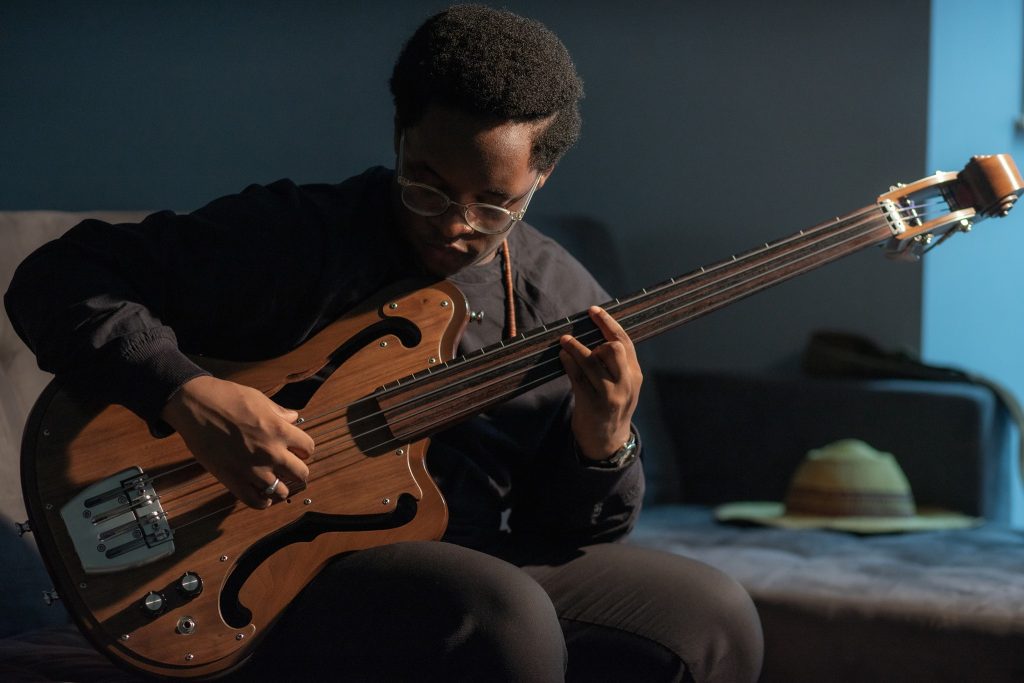
Another sad truth
Julian is a keen observer who sees and speaks the truth about what is happening around him. Yet, another crucial aspect he has pointed out is just another sad truth in Thailand.
“Another thing that shocked me is I think there’s not a lot of Thai pride in the culture. It’s like everybody is rushing to be American, everyone’s rushing to be Korean in both beauty and art and all of these things, but Thailand has such a beautiful rich culture and I find that the deeper people dig into what makes them Thai, the cooler their art comes out, the cooler their individuality comes out.
I mean, of course, if you want to talk about all the negative toxic aspects of being Thai, you could. Sure you could only talk about that, just the way that you could talk about that for Americans and Europeans and different countries, but there’s so much really beautiful, cool stuff. I think, in certain appropriate moments, Thai people are really good at taking care of each other, in certain moments, not all moments, I think that’s a big one”.
By Jeerapa Boonyatus

